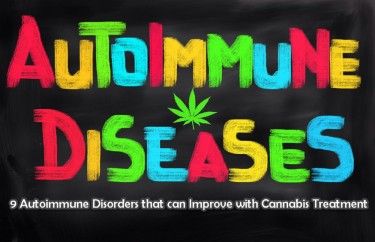Cannabis News
Cannabis May Be Moved to a Schedule 3 Drug
Published
1 year agoon
By
admin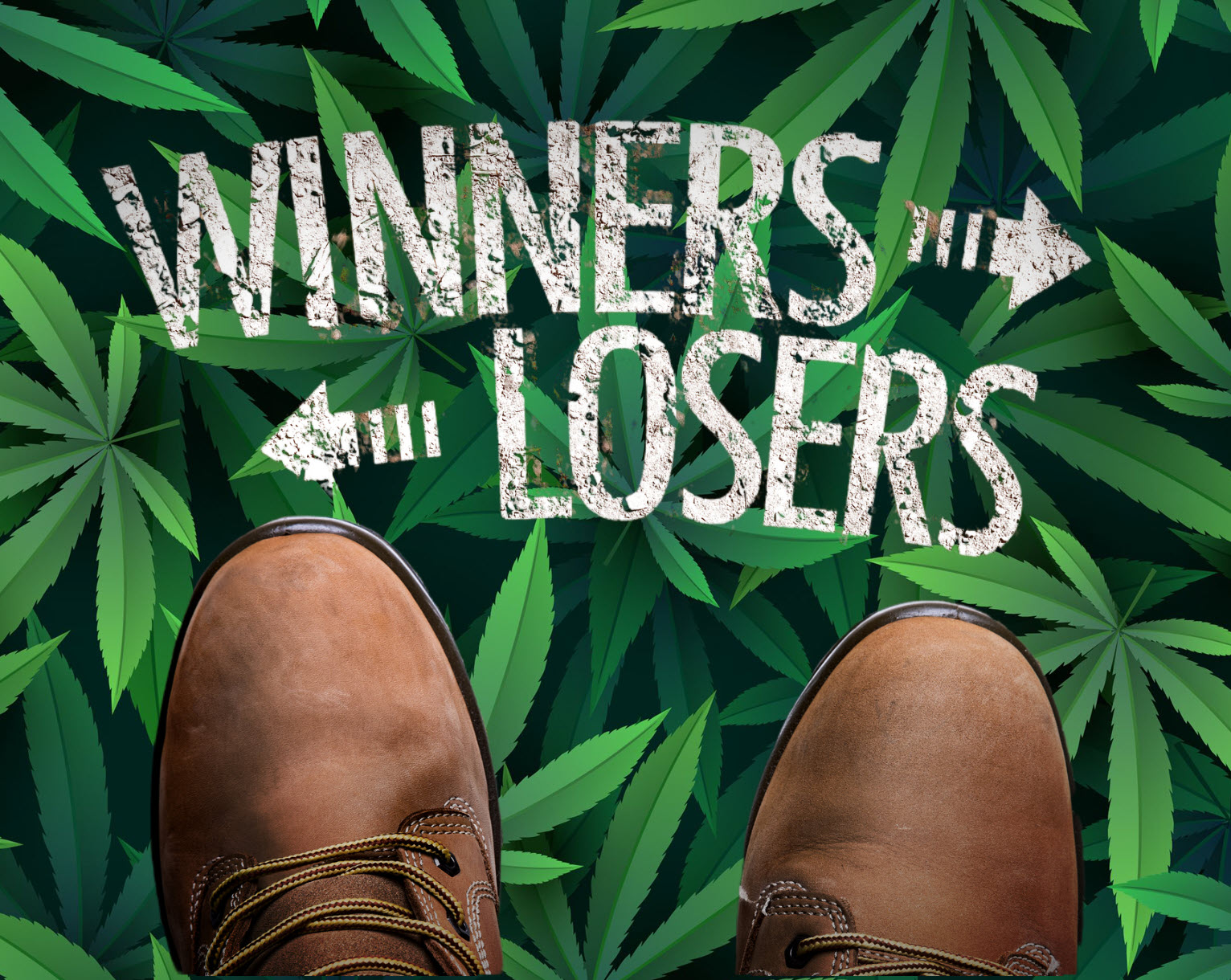
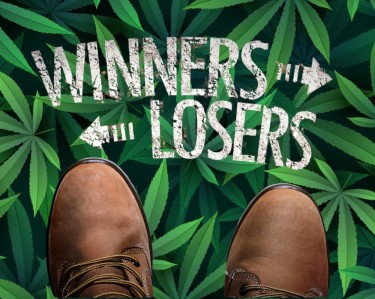
Cannabis to Schedule 3? Who are the Winners, the Whiners, and the Losers?
It has been over a week so how do you feel about the possible move coming for marijuana to go from a Schedule 1 drug to a Schedule 3 drug on the CSA?
The industry has been volleying opinions back and forth so I won’t bore you with the “it’s great, it’s not great” debate, you can read that stuf pretty much all over, including a nice piece by Cannabis Tech as they talked to 19 cannabis leaders about the HHS recommendation here. Cannabis.net also had a legacy stoner write up his opinion on the change and what it means in a piece called, “Lipstick on a Pig”.
In case you aren’t an avid follower of the weed industry or have been off the grid for a few weeks, let me update you on the big cannabis news. The Department of Health and Human Services has formally recommended that the Drug Enforcement Administration (DEA) reduce federal restrictions on marijuana despite its continued federal illegality. However, 40 states permit its use to varying degrees.
This action comes after President Joe Biden’s order to the leading health organization to carry out a thorough assessment of marijuana, which was given 11 months ago. The HHS recommends moving cannabis from being classified as a Schedule I drug to a Schedule III drug under the Controlled Substances Act.
According to the DEA, cannabis is classified alongside other Schedule I substances, such as heroin and LSD. This classification implies a perceived high potential for abuse and a lack of recognized medical utility.
If this recommendation became law, it would mark a huge and fundamental divergence from cannabis’s existing classification as a Schedule I drug. This categorization would change how people view marijuana by separating it from high-risk substances like heroin and recognizing its possible medical uses.
The HHS Recommendation to Reschedule
An HHS spokesperson conveyed that they promptly responded to the directive by submitting their recommendation to the DEA on August 29th.
Assistant Secretary for Health Rachel Levine stated that her recommendation was grounded in a thorough review by the Food and Drug Administration regarding the classification of marijuana. This review had been pledged following President Biden’s October pardon of federal offenses related to simple possession. At that time, President Biden tasked the HHS secretary and the U.S. Attorney General with assessing the federal scheduling of marijuana.
Cannabis would significantly change if the DEA reclassified it as a Schedule III substance, including the elimination of an IRS provision that forbade drug traffickers from deducting their business expenditures from their taxes (280E as it is so affectionately known as in the cannabis industry). The marijuana sector might be able to save hundreds of millions of dollars annually because of this change. According to NBC News, small business owners have stated that their inability to deduct what are normally thought of as regular business expenses is their biggest financial difficulty.
Now that HHS has made its recommendation, all attention is on the DEA, which holds the ultimate authority over substance scheduling. The DEA, not a historical fan of cannabis, could take years to review and make a decision.
According to five sources familiar with the planning, the Biden administration had aimed to announce the drug’s rescheduling in the Fall to coincide with the election cycle in 2024, approximately a year after the president’s request for the review. The duration of the DEA’s public review process remains uncertain at this point.
In response to inquiries, a DEA spokesperson confirmed, “We can confirm DEA received a letter from the Department of Health and Human Services providing its findings and recommendation on marijuana scheduling, pursuant to President Biden’s request for a review.” The spokesperson also stated, “DEA will now initiate its review.”
When questioned about the recommendation during a news briefing on Wednesday, White House press secretary Karine Jean-Pierre emphasized that the review is an independent process led by HHS and the Department of Justice. She declined to comment on President Biden’s current stance on the federal decriminalization of marijuana.
Response/Reactions to The Recommendation
The response to the HHS recommendation has garnered strong support within the corridors of Capitol Hill. In a statement, Senate Majority Leader Chuck Schumer commended HHS for taking a decisive step in the right direction. He urged the DEA to swiftly follow suit, emphasizing the importance of this move in significantly reducing the harm caused by stringent marijuana laws. Senator Schumer, a Democrat from New York, stressed that there remains a considerable legislative agenda to dismantle the federal cannabis prohibition and roll back the War on Drugs.
Advocates of marijuana legalization perceive this initial action as a momentous milestone. It signifies the federal government’s formal recognition of cannabis’s medical contributions for the very first time.
The Cannabis Industry Association emphasized the necessity of further harmonizing federal law with states where marijuana is legal while acknowledging the historical significance of the suggested reclassification. According to CEO Aaron Smith, delisting cannabis from the Controlled Substances Act and regulating it similarly to alcohol will ultimately address the complex issues arising from the federal-state conflict.
As both political parties look to use this issue as a political wedge in the run-up to the 2024 presidential election, relaxing federal marijuana laws also has political relevance. The majority of Americans support legalization, according to polls taken year over year since 2016.
Reps. Matt Gaetz, Greg Steube, and Brian Mast, all Republicans from Florida, have openly advocated for the drug to be rescheduled and urged the Biden administration to prioritize the endeavor. Although Florida voters legalized medicinal marijuana usage last year, Florida Governor Ron DeSantis has stepped up his opposition to decriminalizing and legalizing marijuana on the presidential campaign trail this week. The Florida Supreme Court is debating whether a ballot measure legalizing marijuana will appear in 2024.
Additionally, there is a bipartisan initiative underway in Congress aimed at simplifying the provision of banking services to legitimate cannabis businesses.
Senator Schumer has emphasized that passing the SAFE Banking Act, as it’s known, will be of utmost importance when the Senate reconvenes in September. However, the potential for a government shutdown could pose challenges to this object bill’s proponents of the bill to resolve a deadlock that emerged concerning the August recess.
One of the primary reasons why cannabis enterprises continue to struggle with limited access to financial services, obstacles in conducting medical research, and restrictions on the interstate transportation of products approved for medical use in numerous U.S. states is the current Schedule I classification of marijuana. Despite the widespread acceptance of medical marijuana, only the FDA possesses the legal authority to approve medications for medical use throughout the United States.
Bottom Line – Who are the Winners, the Whiners, and the Losers?
Winners – The cannabis industry in general, the black market, and MSOs. One, regardless of what you think schedule 3 will ultimately mean, pharma taking over the whole industry or not, it is better than a schedule 1 drug, period. If you are a conspiracy theorist and believe this is Big Pharma’s move to control prescriptions and the industry, so be it, time will tell, but getting cannabis off the “spend the rest of your life in prison” drug list, is the #1 win of the whole thing, let the chips fall where they may in the future. This writer does not feel this is the trojan horse some have made it out to be and Big Pharma will rule cannabis forever going forward. 3 < 1, win!
The second biggest winners, and a groan will go out from all the legacy cannabis people, the MSOs, or multistate operators will be BIG financial winners in this one. Basically, the bigger your expenses and operation, the more damage 280E and the inability to write off any of those expenses, did to your bottom line. If you reverse that same equation and take 280E off those financial statements, all those expenses now become tax write-offs, saving the MSO hundreds of millions of dollars in tax credit or refunds. We caught wind of this strategy at the Benzinga Cannabis Conference where it was mentioned that none of the MSOs were actually paying the taxes, they were kicking the can down the road hoping for a descheduling or rescheduling of the drug. Once that happened, they could go to court and say they should have never paid those taxes in the first place as cannabis is no longer a schedule 1 drug, and at this point, that bat bleep crazy strategy actually worked! MJ BIZ picked up on this same theme recently in their article on the cash windfall coming to companies for the 280E tax classification change.
Third place winner, the black or illicit cannabis market. While already booming in the US and around the world, any instance of lessening of the punishment for getting caught selling or shipping cannabis will only encourage more aggressive business behavior. For example, if you get caught shipping 20lbs of a schedule 1 drug from California to New York, you were looking at life in jail. If that changes to a fine or something much less severe, you remove a disincentive, in economic terms, to not take an action. Hence, the opposite is true, you created more of an incentive to take chances, push the limits to get more profit because the punishment for getting caught will be much less severe. (Schedule 3 illegal drug shipment compared to a Schedule 1). The illicit market should sleep well at night if this change is made because the possible punishment for growing weed without a license and selling it out of your van or shipping it over the internet will not be much less than any time since 1952. There is now economic inventive for the illicit market to push the limits on growing, sending, and pricing, as getting caught “won’t be so bad” in historical perspective.
Fourth Place Winner – International Markets – UN drug treaties be damned as Canada and Colombia have already shown the world, as they have been shipping cannabis internationally for months if not years now, but any change to the “severity of US listings of the drug”, will only increase risk from companies in other countries to push the boundaries of international and US law. Anything that dissipates the sting of that law will only encourage more business aggression in shipping and growing cannabis. Similar to the black-market argument above, if the fines and repercussions are lessened by the US and the UN, you are inviting more risk and aggressive behavior to try and make a profit.
Honorable Mention Winner – The rumor and speculation mill. Ever since the announcement by the HHS, the rumor mill about what could happen, secret plans, what it really means, wake up people, don’t get fooled, happiest day of my life, stuff is going off the rails. One rumor is that it will only apply to medical marijuana and recreational will still be a schedule 1 drug. Hard to do since THC is the actual cannabinoid on the Schedule 1 list, so lowering it to schedule 3 would affect both recreational and medical. The biggest rumor is the cannabis industry will be place in the hands of the FDA and Big Pharma like we all feared from day #1 and all the local growers and providers will be shut out of the industry. Fat chance. They have been trying to shut down illegal cannabis since 1952, no luck, now legal in over 40 states in some form or another. Don’t count of the FDA and DEA hiring thousands of agents to try and snuff out state-legal cannabis operations and public companies.
Losers – It is hard to find a loser when you go from a schedule 1 to a schedule 3 drug without going into fear mongering about the FDA and Big Pharma. In general, MSOs are going to have way more cash and profits, so that won’t bode well for smaller companies trying to compete with the big boys. Those that want cannabis descheduled will hoot and holler, but that was never really a viable option. You aren’t going from “schedule 1 like cocaine and heroin” to “unscheduled like peanut butter” overnight. Cannabis does pass through the blood-brain barrier and get you high, it does impair your senses and alter your thoughts and concept of reality for a bit while using it, so descheduling, while sounding nice, was never really on the table unfortunately.
Interstate commerce is the next massive shoe to drop, so not sure how Schedule 3 will affect those companies that had to “silo” their whole operation in each state, having to go from seed to sale and production in each state they enter. If interstate commerce is opened up, then the industry will finally start to reach a state of economic equilibrium as you will know the price of a Snoop Leaf or Chong’s Choice blunt in California and Massachusetts. You will also know the fair price of a pound of Emerald Triangle legal weed vs a pound of Emerald Triangle illegal weed.
Whiners – The cannabis industry proletariat that are screaming “rescheduling is not enough, we need descheduling!”. These are the same people that say, “cannabis isn’t a drug, it’s a plant”. First off, almost all drugs come from plants or did in their infancy. Nicotine, caffeine, heroin, cocaine, and opium all “come from plants” and they are clearly drugs, so yes, cannabis is a plant and a drug. Its cannabinoids pass through the blood-brain barrier and get you high, it is a drug and plant, move on.
The words “don’t settle for rescheduling” have been part of many op-ed pieces about the HHS news, and for some reason, these people think the US government and the cannabis industry are some sort of equal parties or in negotiations about this subject. As Binder says in the Breakfast Club movie, “Not even close, bud!”. The word “settle” implies some sort of negotiations or bartering of the details, which is just not the case in the US government vs the marijuana industry. There are no negotiations or evidence the US government gives one iota what the marijuana industry wants, so to say “don’t settle” is a bit rich. It is like being at your sentencing in front of judge where you get 2 years in jail and saying, “I won’t settle for that, I want less!”. Umm, yeah, it doesn’t work that way, the US government is the judge, and they decide the status of cannabis based on voters and future election results that the present party in office is worried about, not what the marijuana industry wants to see.
What if we all decide “not to settle for Schedule 3”? Now what? Oh yeah, nothing we can do since as a group we have very limited power and influence in politics. The industry is an outlier, we have cut lobbying money down to the bare bones in DC, no one of influence cares what we want or think, they are looking out for votes and power-broker money, think about what Big Tobacco and Big Pharma want, that is what is on their minds as they write the big checks in DC.
It isn’t up to us to settle; we sound like bratty little kids who just got their first dinner in months and are complaining it didn’t come with a dinner roll and desert. Take the Schedule 3 W when and if it comes and live to fight another day. Win the battle and keep fighting the war.
MORE ON A POSSIBLE SCHEDULE 3 MOVE, READ ON…
You may like
-


California Appeals Court Rejects Marijuana Grow Permit, Citing Federal Illegality
-


Expert Lighting Tips For Successful Indoor Growing Weed
-


Acne And CBD: Exploring Alternative Dermatological Solutions
-


Can I Gift Marijuana This Holiday Season?
-


The Best Cocktails For An Easy Festive Thanksgiving
-


420 Vacations: Planning the Perfect Weed Vacation
Cannabis News
California Appeals Court Rejects Marijuana Grow Permit, Citing Federal Illegality
Published
41 minutes agoon
November 22, 2024By
admin
In a landmark decision that highlights the tension between state and federal cannabis laws, a California appellate court ruled on October 29th that property owners can refuse to allow the transportation of cannabis across their land via easements, even when the cannabis operation is approved by local authorities.
The Second District Court of Appeal’s unanimous decision draws attention to private property rights in a context where cannabis remains federally illegal, but state law allows licensed cultivation, distribution and sale. Presiding Justice Albert Gilbert stated, “No matter how much California voters and the Legislature might try, cannabis cultivation and transportation are illegal in California as long as it remains illegal under federal law.” JCCrandall LLC v. County of Santa Barbara, Case No. B333201, 2024 WL 4599304, Oct. 29, 2024.
Unless the California Supreme Court grants review – which I would not rule out – the decision empowers private property owners to refuse to contract with cannabis businesses, and restricts local government from approving cannabis operations that implicate the property rights of neighbors who object.
The case at hand
The dispute centered around a cannabis cultivation operation in Santa Barbara County, where JCCrandall LLC challenged a conditional use permit granted by the County to its neighbor, Santa Rita Holdings Inc. The critical issue was that Santa Rita Holdings could only access its 2.5-acre cannabis farm via an unpaved road crossing JCCrandall’s property through a pre-existing easement. JCCrandall grows oats and barley.
JCCrandall’s primary concern? It raised a number of complaints with the Santa Barbara County Supervisors about truck traffic and night operations, which did not gain traction, but in the Court of Appeal JCCrandall focused on what it claimed was potential liability associated with having federally illegal substances transported across its property, even though County regulators found that the Santa Rita operation was fully compliant with state and local laws.
Key legal findings
The appellate court’s decision hinged on several crucial points:
- Property Rights: The court emphasized that “the right to exclude others is the essence of the right of property ownership” and classified it as a fundamental vested right.
- Federal Supremacy: The panel determined that allowing cannabis transportation across private property “defies the Supremacy Clause” of the U.S. Constitution.
- State vs. Federal Law: While cannabis might be legal under California law, the court ruled that federal law’s prohibition takes precedence in this context.
California cannabis industry implications
Legal experts suggest this ruling could have far-reaching consequences for California’s cannabis industry. Section 1550.5(b) of the California Civil Code makes contracts within California involving cannabis lawful and enforceable, and Santa Rita Holdings bet the ranch on that argument. But the Court of Appeal held that the statute could not compel a landowner to allow cannabis to travel across its property on a pre-existing easement. Licensed operators may find it harder to do business because neighbors who have property rights affected by a cannabis business can object, and, under the JCCrandall ruling, local government must yield to those objections.
An example might be a cannabis dispensary that depends on access to its parking lot via an easement or is located in a shopping center where other lessees have rights to object to tenants notwithstanding the approval of the landlord. In cultivation, many cannabis farms depend on vehicular access through easements because they are remote and do not always have direct access to public thoroughfares, or they depend on water sourced from other properties pursuant to agreements made by prior owners who grew traditional crops. These neighbors might not need to show any negative impact on their property, but can argue that they could be found complicit in federally illegal activities.
I think the most problematic language in the JCCrandall ruling is the following, which might draw the attention of the California Supreme Court and cause it to grant review: “For as long as an easement is enjoyed, its mode and manner of use shall remain substantially the same as it was at the time the easement was created. The County argues the easement was used for agricultural purposes. But there is a vast difference between legal and illegal agricultural purposes.” (Emphasis added.) If California has determined that cannabis cultivation is legal – as it has – and state courts routinely enforce contracts involving cannabis, it is a pretty bold step to declare the use of a lawful pre-existing easement illegal simply because the agricultural crop is cannabis and take away easement access from Santa Rita.
Looking ahead
This decision creates new challenges for cannabis businesses in California, and will result in more disputes among neighbors. While the Biden administration has shown signs of easing federal marijuana restrictions, this ruling demonstrates that the federal-state law conflict continues to create significant legal hurdles for the cannabis industry.
California court decisions also can be persuasive authority in other states, so we might see similar litigation (and decisions) elsewhere in the country where cannabis has been legalized.
The case serves as a reminder that despite California’s progressive stance on cannabis, federal prohibition continues to cast a long shadow over the industry’s operations and development. As the cannabis landscape continues to evolve, this ruling may prompt businesses to reassess their property arrangements and local governments will certainly have to reconsider their permitting processes to give more careful consideration to objections by neighbors who claim that their property rights are implicated by cannabis operations.
Note: This post was first published earlier this month on the Alger ADR Blog.
Cannabis News
Autoimmune Conditions Are Rising Fast in American Medicine, Can Cannabis Help?
Published
1 day agoon
November 21, 2024By
admin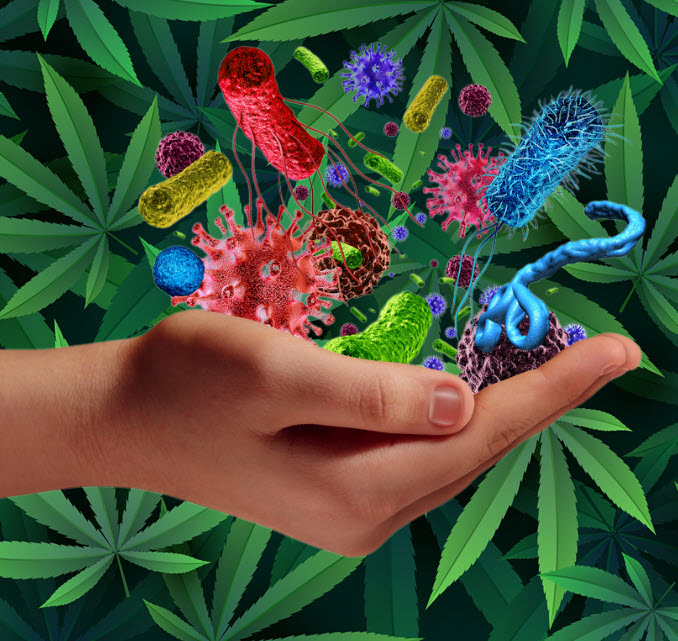
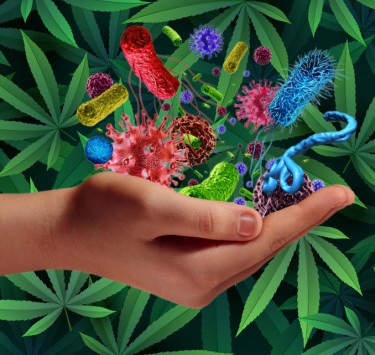
Why Are Autoimmune Conditions On The Rise? And How Cannabis Can Help
Autoimmune diseases refer to a group of medical conditions that occur as a result of the immune system attacking your own tissues.
In a normal human body, the immune system is responsible for protecting the body by producing antibodies that prevent toxins, cancer cells, and viruses from harming the body. However, when one is struck by an autoimmune disorder, the immune system is no longer able to distinguish the difference between dangerous cells and healthy cells. As a result, the healthy cells are attacked, too.
Today, we know of around 100 different kinds of autoimmune conditions. Some of the most common examples of autoimmune conditions include rheumatoid arthritis (RA), lupus, inflammatory bowel disease, celiac disease, Type 1 diabetes, multiple sclerosis (MS), and the Guillain-Barre syndrome (GBS) to name a few. Others include Graves’ disease, Hashimoto’s thyroiditis, psoriasis, and vasculitis.
According to the National Health Council, around 50 million Americans are affected by autoimmune diseases today. This is a conservative estimate, considering that several autoimmune conditions are tricky to treat and so many people go undiagnosed for long periods of time. It’s worrisome to note that there are more people developing autoimmune diseases these days, many of which have reached levels comparable to epidemics.
But cannabis can help!
How Cannabis Can Help Curb And Manage Autoimmune Diseases
Not one single cause is responsible for the alarming growth of autoimmune diseases, though there are several factors at play. While there isn’t just one cause we can point at, it’s certain the reasons lie in our environment. After all, human genetics haven’t changed significantly yet the chemicals, toxins, and pollutants in our food and everyday items have risen dramatically.
In addition, people are getting less sleep than ever; stress rates are through the roof, and people are constantly worried. There is a clear link between psychological stress and physical health as well as immunity, which is why it isn’t unusual – it’s even common – to see many autoimmune disease cases flare up after people experience severe stress caused by grief, an accident, job loss, or the death of a loved one. These highly stressful and traumatic conditions wreak havoc on the body’s immune response, causing inflammation all over the body.
Conventional treatments prescribed to treat autoimmune conditions are focused on taming inflammation; these usually include steroids but also some non-steroidal drugs. These drugs often come with unwanted side effects, but research has shown that cannabis can work with the endocannabinoid system through THC and CBD, as well as other cannabinoids, to simulate similar results. In one study for example, we can see the clear association of the endocannabinoid system for neurodegenerative and inflammatory processes seen in Multiple Sclerosis and Amyotrophic Lateral Sclerosis.
There has also been an increasing number of studies proving the efficacy of cannabis for treating several autoimmune conditions.
Cannabis For Multiple Sclerosis
Multiple sclerosis is one of the autoimmune conditions where a growing number of studies have come out supporting the therapeutic benefits of cannabis for. In a 2024 study, patients with multiple sclerosis reported several improvements in quality of life after using cannabis-based medical products (CBMPs). For the study, British investigators analyzed the impact of cannabis based medicinal products made from either oil or extracts in 141 patients who were enrolled in the UK Medical Cannabis Registry.
The researchers then analyzed the changes in patient outcomes after a month, then three and 6 months after. According to the patients themselves, they were able to sustain improvements in their mental and physical health after marijuana therapy.
“This case series demonstrates a potential association between the initiation of CBMPs and improved patient reported outcomes in sleep, anxiety, and general HRQoL [health-related quality of life] measures, over six months,” said the study authors. “Additional measures for HRQoL, including various physical and mental health subdomains, also exhibit improvements up to six months when compared to baseline,” the authors concluded.
In another study from 2023, patients with multiple sclerosis reported significant improvements in symptoms after cannabis use. For the study, researchers from the Dent Neurologic Institute in Buffalo, New York, analyzed the medical records of 141 patients with multiple sclerosis, who were also legally authorized to consume medical marijuana products. They then analyzed data from the patients after one up to 4 follow-up sessions after the initial session of cannabis therapy. Sixty-five percent of patients consumed 1:1 THC:CBD tinctures.
According to the authors: “The results of this study indicate that use of MC [medical cannabis] to alleviate symptoms of MS is largely efficacious, with improvement in pain (72 percent of patients), muscle spasticity (48 percent of patients), and sleep disturbance (40 percent of patients) frequently reported.”
“More than half of opioid users at baseline were able to either discontinue or decrease their opioid use after starting MC. The mean daily MME [morphine milligram equivalents] was significantly reduced from the initial visit (51 mg) to the last follow-up visit (40 mg). This is consistent with previous literature showing that MC legalization is associated with decreased opioid use and that MC use is associated with decreased opioid use in patients with chronic pain. These findings indicate that MC may represent an alternative analgesic to opioids for some patients,” they wrote.
Anecdotal Evidence
While more studies are needed to determine cannabis’ effect on other autoimmune conditions such as rheumatoid arthritis, we can rely on anecdotal evidence. In 2020, data from the medical journal, Rheumatology, revealed that patients who have this condition, along with those who have lupus and fibromyalgia, consume cannabis.
In fact, it was reported that marijuana was extremely common especially for patients with fibromyalgia. “In this meta-analysis, we found that one in six patients suffering from rheumatologic disease actively consumes cannabis, reducing pain reduction… A favorable effect of cannabis on pain in our meta-analysis reinforces the idea that cannabis could be used for analgesic purposes,” the authors concluded.
Conclusion
Cannabis is a safe and natural way to help prevent and treat the symptoms of autoimmune disease. It targets inflammation at its root, and is a proven natural way to help cope with stress, pain, insomnia, and inflammation all while protecting the brain. However, it’s important to ensure you medicate with clean, organic sources of marijuana.
AUTOIMMUNE AND CANNABIS, READ ON…

The U.S. Senate’s version of the Farm Bill finally landed this week. They’re calling it the Rural Prosperity and Food Security Act of 2024 (the “Senate bill”). The Senate bill follows on the House’s proposal, called the Farm, Food and National Security Act of 2024 (the “House bill”), offered in May. Neither the Senate bill nor the House bill would preempt state or Indian law regarding hemp or the regulation of hemp products. This means states and tribes will retain a lot of latitude in regulating hemp and hemp-derived products– which gets people fired up.
Aside from giving states some runway, the Senate bill and the House bill differ in key respects regarding hemp. Therefore, these august bodies must confer and reconcile their sundry proposals. That could happen in 2024, but seems more likely in 2025 when the new Congress convenes. As of this week, though, we finally have a framework.
The Senate Bill re-defines “hemp” and defines “industrial hemp”
Section 10016 of the Senate bill (“Hemp Production”) amends the definition of “hemp.” Hemp was defined in the 2018 Farm Bill and removed from the federal Controlled Substances Act (CSA), taking us on a truly wild ride. See: What Happened to Hemp? (“What Happened”). The Senate bill also gives us a definition for “industrial hemp.” Here are those definitions, with points of emphasis in bold:
(1) Hemp. The term “hemp” means (A) the plant Cannabis sativa L. and any part of that plant, including the seeds thereof and all derivatives, extracts, cannabinoids, isomers, acids, salts, and salts of isomers, whether growing or not, with a delta-9 total tetrahydrocannabinol concentration (including tetrahydrocannabinolic acid) of not more than 0.3 percent on a dry weight basis; and (B) industrial hemp.
(3) Industrial Hemp. The term “industrial hemp” means the plant Cannabis sativa L. if the harvested material (A) is only (i) the stalks of that plant, fiber produced from those stalks, or any other manufactured product, derivative, mixture, or preparation of those stalks (except cannabinoid resin extracted from those stalks); (ii) whole grain, oil, cake, nut, hull, or any other compound, manufactured product, derivative, mixture, or preparation of the seeds of that plant (except cannabinoid resin extracted from the seeds of that plant); or (iii) viable seeds of that plant produced solely for production or manufacture of any material described in clause (i) or (ii); and (B) will not be used in the manufacturing or synthesis of natural or synthetic cannabinoid products.
The new regime
Again, the definitional stuff in bold is what I want to emphasize.
First, the Senate bill keeps the THC threshold at 0.3 percent, which is an arbitrary number we’ve been advocating against for years. The Senate bill mirrors the House bill in this respect, though, so we are stuck with this, unless Ron Paul gets his way.
Second, the Senate bill keeps the 2018 Farm Bill’s total THC standard, including THCA. The House bill does this too. This was fairly predictable: in What Happened, I wrote that we could “expect the total THC standard to remain, which means that actual Delta-9 THC won’t be the only metric for calculating THC content.”
We’ve also explained on this blog that the 2018 Farm Bill and USDA rules mandate total THC testing on pre-harvest hemp batches, but do not mandate such testing on post-harvest hemp or hemp products. The Senate bill doesn’t change this paradigm, which means the “loophole” for gas station weed remains open. This proposal is a big win for opponents of the House bill’s “Miller Amendment,” which would narrow the definition of “hemp” to exclude intoxicating hemp-derived substances.
Third, the Senate bill introduces a new definition and framework for industrial hemp. The House bill does this too, albeit slightly differently. The idea here is to invite farmers to grow hemp for fiber and grain purposes, while freeing them from regulatory burdens with the Department of Agriculture and criminal exposure with the Department of Justice. More specifically, for “industrial hemp” growers, the Senate bill:
- removes background check requirements;
- instates “relaxed regulatory requirements” for sampling and inspection methodologies (which will need to be adopted by rule); and
- develops a certified seed program.
The Senate bill also makes any hemp producer ineligible to grow hemp for five years if that producer, “with a culpable mental state greater than negligence, produces a crop of hemp that is inconsistent with that license.”(Hint: use the seed program.) The proof standard here seems like it could be an issue, and even if anyone has been adjudicated as growing marijuana under the guise of hemp, Farm Bill ineligibility seems like a far-off concern.
Bottom line
The big takeaway for me is that the Senate bill leaves the door open for intoxicating hemp products, whereas the Miller Amendment to the House bill does not. Something’s gotta give. And it needs to happen soon, because we’re already long overdue. As I explained in a webinar last week, the Farm Bill deals with the nation’s entire food supply, not just hemp. Therefore, this is not like with the SAFE Banking Act, where we have a proposed law specific to cannabis that may or may not ever pass. The Farm Bill must pass, and soon.
Stay tuned and we’ll keep you updated on any major happenings. For more on this topic, check out our massive hemp and CBD archive, or these specific, recent posts:

California Appeals Court Rejects Marijuana Grow Permit, Citing Federal Illegality

Expert Lighting Tips For Successful Indoor Growing Weed

Acne And CBD: Exploring Alternative Dermatological Solutions

Can I Gift Marijuana This Holiday Season?

The Best Cocktails For An Easy Festive Thanksgiving

420 Vacations: Planning the Perfect Weed Vacation

Can Microdosing Help Manage Holiday Family Anxiety

11 Weed Shows and Movies on Netflix Worth Watching

Lawsuit Says DEA Acting In Bad Faith Over Marijuana

Autoimmune Conditions Are Rising Fast in American Medicine, Can Cannabis Help?

Distressed Cannabis Business Takeaways – Canna Law Blog™

United States: Alex Malyshev And Melinda Fellner Discuss The Intersection Of Tax And Cannabis In New Video Series – Part VI: Licensing (Video)

What you Need to Know

Drug Testing for Marijuana – The Joint Blog

NCIA Write About Their Equity Scholarship Program

It has been a wild news week – here’s how CBD and weed can help you relax

Cannabis, alcohol firm SNDL loses CA$372.4 million in 2022

A new April 20 cannabis contest includes a $40,000 purse

Your Go-To Source for Cannabis Logos and Designs

UArizona launches online cannabis compliance online course
Trending
-

 Cannabis News2 years ago
Cannabis News2 years agoDistressed Cannabis Business Takeaways – Canna Law Blog™
-

 One-Hit Wonders2 years ago
One-Hit Wonders2 years agoUnited States: Alex Malyshev And Melinda Fellner Discuss The Intersection Of Tax And Cannabis In New Video Series – Part VI: Licensing (Video)
-

 Cannabis 1012 years ago
Cannabis 1012 years agoWhat you Need to Know
-

 drug testing11 months ago
drug testing11 months agoDrug Testing for Marijuana – The Joint Blog
-

 Education2 years ago
Education2 years agoNCIA Write About Their Equity Scholarship Program
-

 Cannabis2 years ago
Cannabis2 years agoIt has been a wild news week – here’s how CBD and weed can help you relax
-

 Marijuana Business Daily2 years ago
Marijuana Business Daily2 years agoCannabis, alcohol firm SNDL loses CA$372.4 million in 2022
-

 California2 years ago
California2 years agoA new April 20 cannabis contest includes a $40,000 purse





